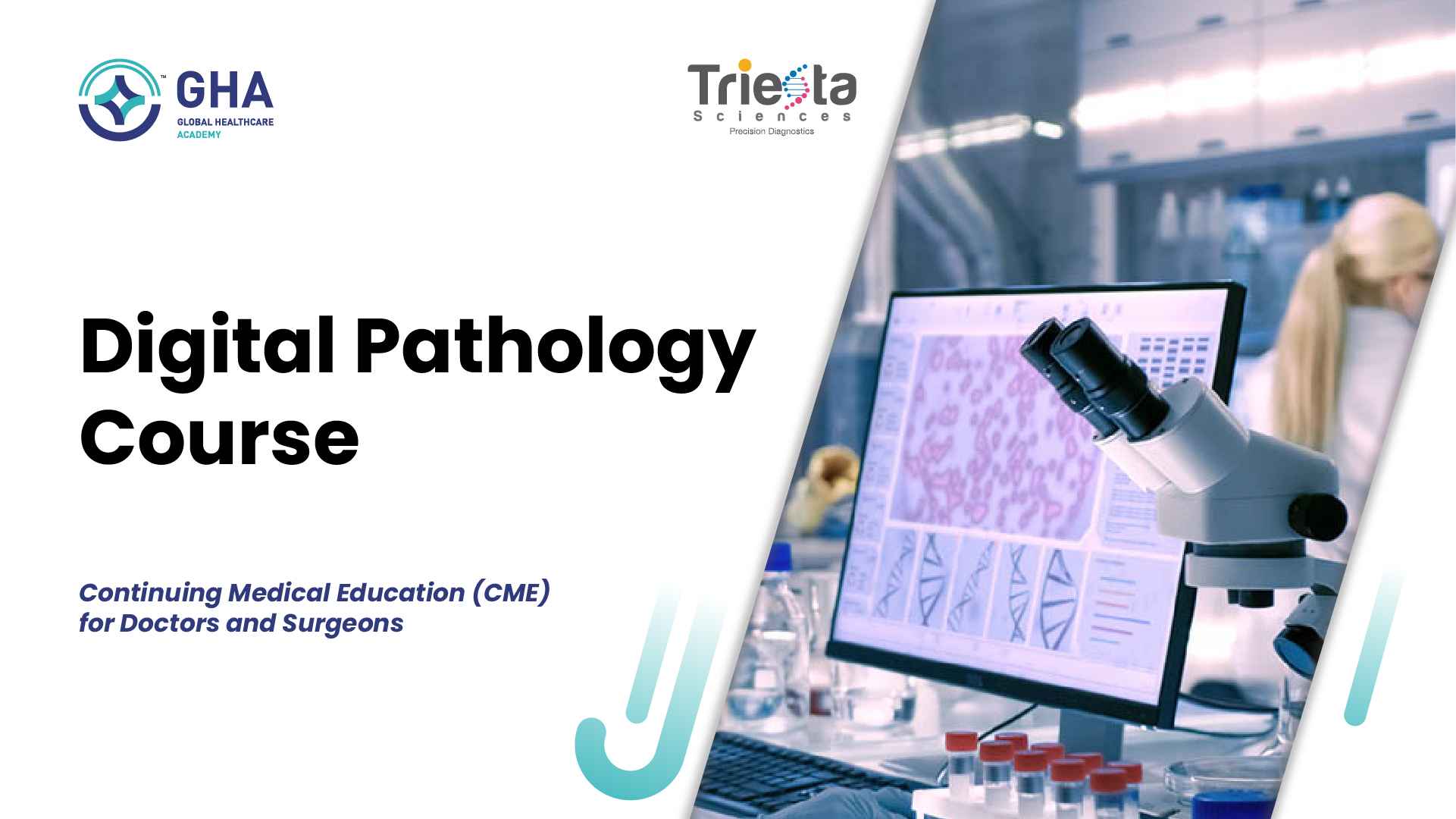Digital Pathology Course
As healthcare embraces digital transformation, pathology is entering a new era—one where slides become data and diagnostics become dynamic. This Digital Pathology certification course is crafted for professionals ready to bridge the gap between the microscope and machine learning.
Online / Offline
2 Months (online) / Offline (1 Day)
Practicing Pathologists,
Histology and Cytology Technicians,
Digital Scanning Technicians,
Pathology Residents and Assistants
About courses
- Demonstrate proficiency in handling digital pathology tools and WSI systems
- Analyze pathology images using software and interpret results accurately
- Integrate digital pathology into routine lab workflows, including LIS connectivity
- Identify appropriate AI techniques for pathology tasks and collaborate with data teams
- Evaluate and comply with international regulatory and ethical standards in digital pathology
- Develop a basic AI algorithm using clinical image data and assess its diagnostic relevance
- Contribute to digital transformation initiatives in clinical or research settings
Online
- Pre-recorded Online Sessions
- Interactive Modules
- Algorithm-Building Workshops
- Real-World Case Clinics
- Virtual Lab Tours
Offline
- Classroom-based interactive lectures by subject experts
- Case-based group discussions and role-play sessions
- Hands-on workshops for pedigree drawing and risk assessment
- Supervised clinical observerships in hospitals and genetic centres
- Guided lab visits to molecular and cytogenetics laboratories
- To introduce the evolution and core concepts of digital pathology.
- To provide knowledge of whole slide imaging (WSI), digital scanners, and imaging principles.
- To familiarize learners with image analysis tools and open-source platforms.
- To introduce the role of AI and machine learning in pathology diagnostics.
- To explain workflow design, data management, and LIS integration.
- To create awareness of regulatory frameworks, ethical standards, and data privacy in digital pathology.
- To provide foundational knowledge for developing and validating AI models in clinical pathology.
Course Patron & Faculty

Dr. Veena R
Course Facultyconsultant pathologist and Head of Histopathology, at Triesta Sciences, HCG Hospital Bangalore
FREQUENTLY ASKED QUESTIONS
01 Who is this course intended for?
This course is exclusively designed for pathologists and oncopathologists looking to transition into or advance within digital and computational pathology.
02 Is prior technical or software knowledge required?
No. The course begins with fundamentals and gradually introduces tools and workflows, making it accessible even for those with no prior digital or coding background.
03 Will I get hands-on training in digital tools?
Yes. Both formats include training in WSI systems, image analysis platforms, and real-case workflows. The offline mode provides additional lab tours and supervised scanner use.
04 Does the course include training in AI applications?
Yes. You'll learn the basics of AI and machine learning in pathology, with modules on algorithm development, annotation, and clinical interpretation.
05 What’s the benefit of this course for practicing pathologists?
It prepares you to adopt digital workflows, integrate WSI into diagnostics, participate in remote reporting, and collaborate on AI-driven pathology tools.
06 Will I learn about regulatory and ethical aspects?
Yes. The course includes global digital pathology guidelines (CAP, FDA, RCPath), ethical AI use, data privacy, and validation frameworks for clinical use.
07 Is certification provided?
Yes. A Certificate of Completion will be awarded, recognizing your readiness to implement digital and AI-assisted pathology in clinical or academic settings.
08 What’s the difference between online and offline versions?
Online offers flexibility with virtual labtours and live interactive sessions. Offline includes in-person workshops, case discussions, and on-site lab visits for deeper engagement.


